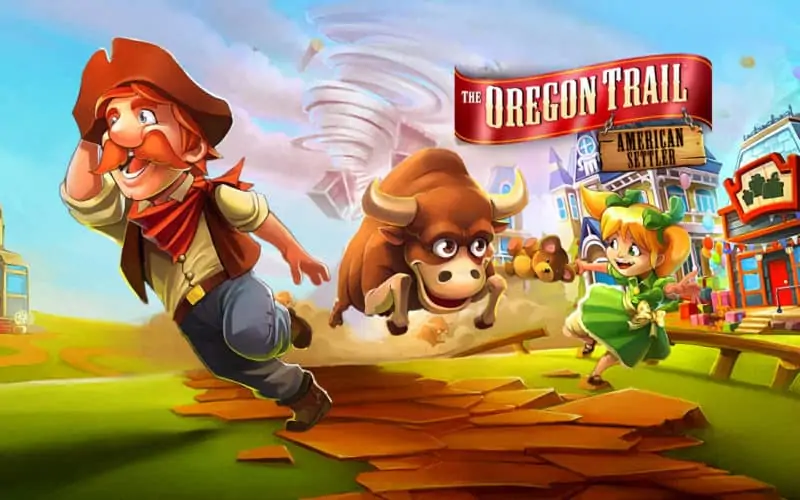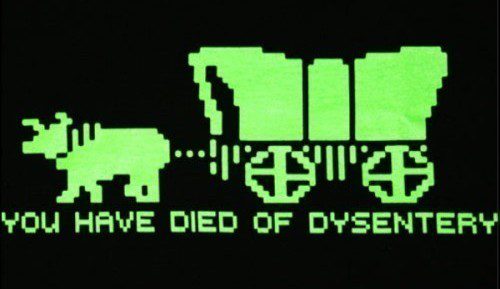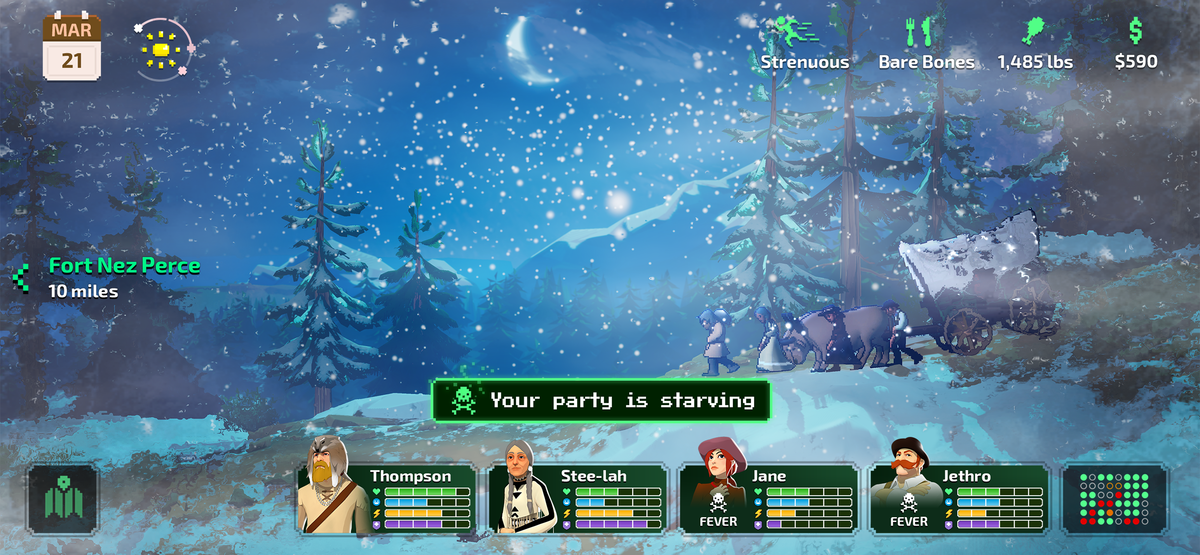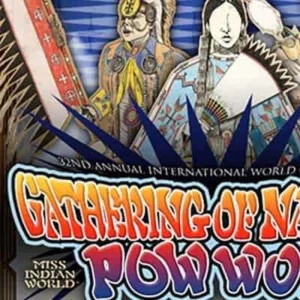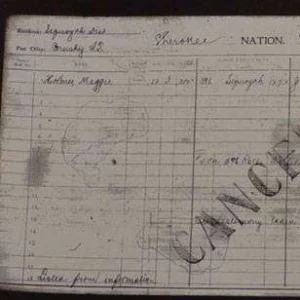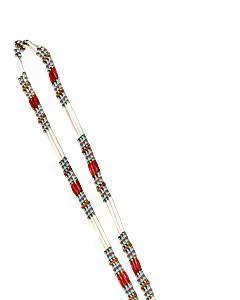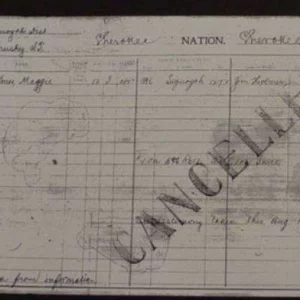Who recalls the low-fi westward wagon adventures and trying to survive on the plains—not to mention the ill-timed bout of dysentery that came along with it all? Most grown adults have fond memories of the classic computer game “The Oregon Trail” from the 70s and 80s. It educated and entertained us during the era of behemoth computers and floppy disks.
According to Classic Reload:
“The original game was designed to teach school children about the realities of 19th-century pioneer life on the Oregon Trail. The player assumes the role of a wagon leader guiding his party of settlers from Independence, Missouri, to Oregon's Willamette Valley over the Oregon Trail via a Conestoga wagon in 1848.”
Image Credit: Oregon Trail Internet Archive
However, at the height of the game's popularity, little was said about the misrepresentation of indigenous characters in the game—nor was there talk of the blatant stereotypes being pushed onto unsuspecting children.
But thankfully, times have changed.
Apple Arcade, along with the game development company Gameloft, just released the fresh and revamped version of “The Oregon Trail” on April 2, 2021.
Its target audience is the nostalgia-seekers who spent hours on end playing the original version, their children, and Native Americans, who are far better represented in this iteration.
Gameloft’s creative director, Jarrad Trudgen, was given the task of “rooting out historical inaccuracies and cliches about Native American culture.” Gameloft hired three indigenous historians to provide input on the game’s music along with the clothing and even the roles of the Native characters in the game. They sought to accurately depict the indigenous characters. That includes their names, appearances, and behaviors.
It’s no easy feat capturing this complicated, difficult history in a video game.
NPR interviewed David Lewis, an anthropology and ethnic studies professor at Oregon State University, and a member of the Confederated Tribes of Grand Ronde—territories where many settlers ended up.
“The real Oregon Trail wasn't a positive story for Native Americans. The settlers kept coming, and the government forced tribes into bad deals—treaties that gave away their best land and forced their people onto reservations where many died. That settlement of Oregon then was initially just theft of land, he says. By and large, the experience of Native people was one of continual loss for the first 70 or 80 years.”
Image Credit: Gameloft
Since the game is still relatively new, there aren’t too many reviews just yet. However, early reviews are coming in fairly well, with an average score of three out of five stars.
A review from Bryan Taylor on the site Pocket Gamer says:
“The Oregon Trail is still about the journey that many brave adventurers took out west to find a new life and the trials and tribulations along the way, but with some serious quality of life improvements. With a fresh coat of paint and some much-needed cultural reference perspective updates, The Oregon Trail has never looked, or played, better.”
Want to see for yourself?
Download the game now from the Apple Store!
Featured Image Credit: Gameloft
